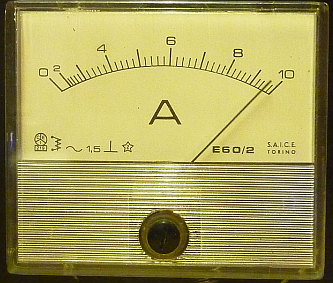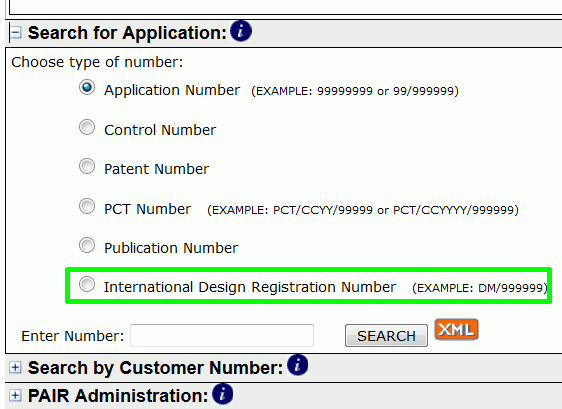 Those who have heard me lecture about the Patent Cooperation Treaty are familiar with my tag line “trendy, modern, and up-to-date” (TMU). The idea of course is that we all surely do want to be TMU when serving clients. Using ePCT for example to administer our PCT applications. Well, I am delighted to report that the Korean patent office, in its role as an International Searching Authority, is moving in the direction of being trendy, modern, and up-to-date. How so, you may ask?
Those who have heard me lecture about the Patent Cooperation Treaty are familiar with my tag line “trendy, modern, and up-to-date” (TMU). The idea of course is that we all surely do want to be TMU when serving clients. Using ePCT for example to administer our PCT applications. Well, I am delighted to report that the Korean patent office, in its role as an International Searching Authority, is moving in the direction of being trendy, modern, and up-to-date. How so, you may ask?
USPTO credit card limit to be cut back still further
We get a lot of frequent flyer miles every year paying fees to the USPTO and WIPO by credit card. The miles that we get are chicken feed compared with the frequent flyer miles that the really big filers — the Oblons and Sughrues of the world — may receive in this way.
Paying a fee by credit card offers the further benefit that we can “float” the cost for a month, and hopefully the client’s payment of its bill will happen promptly enough that we can pay the credit card bill in full using the money that just came in from the client.
Having said this, we note that the USPTO keeps tinkering with its credit-card payment system in ways that make it harder and harder to pay by credit card. Just today USPTO announced another change.
Continue reading “USPTO credit card limit to be cut back still further”
Utility art units with the smallest backlogs
In my previous post about published USPTO statistics for utility art units, I promised another blog post listing the utility art units with the smallest backlogs. Here they are:
Continue reading “Utility art units with the smallest backlogs”
“Pegged”, or, which utility art units have biggest backlogs?
In my early days of amateur radio (call sign AA2KW) the way I knew how much current  was flowing in a circuit was by looking at a needle in a d’Arsonval meter. With the meter at right, with the needle as shown you could fairly confidently say the current is 9.6 amperes. But with this kind of meter if the current got too big, the needle would bump against a “peg”. We would say “the meter is pegged” as a shorthand way of saying “the current is so big that it exceeds the range of the meter”. With the meter at right if the needle were at “10”, a person who did not know how mechanical meters worked might mistakenly conclude that the current was in fact 10 amperes. The real situation was that there was a “peg” to keep the needle from swinging further to the right. If the needle happens to be at “10”, the true value might be 12 amps or 20 amps or more.
was flowing in a circuit was by looking at a needle in a d’Arsonval meter. With the meter at right, with the needle as shown you could fairly confidently say the current is 9.6 amperes. But with this kind of meter if the current got too big, the needle would bump against a “peg”. We would say “the meter is pegged” as a shorthand way of saying “the current is so big that it exceeds the range of the meter”. With the meter at right if the needle were at “10”, a person who did not know how mechanical meters worked might mistakenly conclude that the current was in fact 10 amperes. The real situation was that there was a “peg” to keep the needle from swinging further to the right. If the needle happens to be at “10”, the true value might be 12 amps or 20 amps or more.
Which brings us to the point of today’s blog posting. USPTO publishes statistics as to the backlogs for particular art units. In Private PAIR, you can see the backlog for a specific one of your pending files, communicated as a “First Office Action Predication” based upon when your application was filed and which art unit you are in. The FOAP tells you how many months from now that particular application is likely to receive its first Office Action. USPTO also publishes general statistics for each art unit. Recently I wrote about backlogs in the design art units. Now I am going to say a few words about the utility art units with the biggest backlogs including the art units that are “pegged”.
Continue reading ““Pegged”, or, which utility art units have biggest backlogs?”
Which design art units are the busiest?
The USPTO publishes statistics on the size of the backlog for the various art units. Which design art units have the worst backlogs?
USPTO falling behind in deciding PPH petitions
(Followup postings here and here and here and here.)
USPTO’s internal standard for deciding PPH petitions is to try to attend to each petition with two months of when it was filed. But the Office is falling behind. What can you do?
The last time I asked USPTO about this kind of backlog, which was about two years ago, the Office cheerfully explained that if you want your PPH petition decided promptly, you can file a second petition. This second petition is a petition under Rule 182, with a fee of $400 (smaller for small or micro entities), to ask that the PPH petition be decided promptly.
Anyway after we filed half a dozen of these $400 petitions, USPTO somehow allocated enough resources to the problem that PPH petitions were again being attended to promptly. That was a couple of years ago. But now USPTO has fallen behind again.
It sort of misses the point of PPH if USPTO fails to take up the PPH petitions promptly, seems to me.
Continue reading “USPTO falling behind in deciding PPH petitions”
The ghost art unit at the USPTO
There’s a ghost art unit at the USPTO. It has patent applications assigned to it, but it has no Examiners. If you have the bad luck to have one of your patent applications assigned to this ghost art unit, the application will never get examined. At least, it will never get examined for so long as it sits in this art unit.
At our firm we try to track the FOAPs — first office action predictions — for our pending patent applications. We try to keep track of which art units are bogged down and which ones take up new applications sooner. We stumbled upon the existence of this ghost art unit when we kept noticing that some of our pending applications had no FOAP at all.
USPTO adds Hague functionality to PAIR
The USPTO has made some preparations for the eventual accession by the USPTO to the Hague Agreement. One preparation is picking the new “series code” (my blog here) that USPTO will use to denote that a US application came from Hague. Another preparation is a new search functionality in PAIR, as you may see in the screen shot.
New USPTO “series code” for Hague Agreement cases
Those whose practice includes “inbound” Madrid Protocol trademark applications are accustomed to the series code “79”. When you see a USPTO application number that starts with “79” you know that it is a trademark application number and that it came to the USPTO from the International Bureau of WIPO. Someone who filed a Madrid Protocol trademark application (in a place other than the USPTO) must have designated the US.
Now the USPTO has picked the series code that it will use for Hague Agreement applications.
Continue reading “New USPTO “series code” for Hague Agreement cases”
US progress toward the Hague Agreement
(See update posting here.)
The Hague system, as most readers know, is the one-stop shopping system for filing applications to protect industrial designs around the world. It is somewhat of a counterpart in the industrial design world to the PCT (for utility patents) and Madrid Protocol (for trademarks). What is the progress of the US toward the Hague system? When will people in the US actually be able to file Hague applications? When will people around the world be able to designate the US when they file Hague applications? Continue reading “US progress toward the Hague Agreement”

